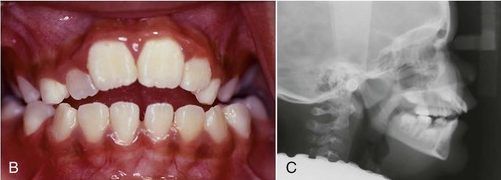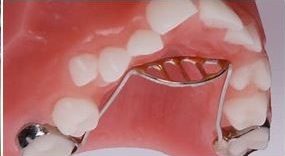SHARES

Thumb sucking is a natural reflex for infants as it gives the baby comfort and make him feel secure and happy. Besides that, babies and toddlers use the habit as a coping mechanism for anxiety or when being separated from parents. Thumb sucking or pacifier also helps soothe children and helps them fall asleep.
As children grow and move into the preschool years, usually they out grow their thumb-sucking habit. However, one in five children will still be retaining their habit past the 5th birthday. This is when parents start to worry, a prolonged thumb sucking habit can have a negative impact on a child’s dentition or oral health. Beyond dental issues, such children may develop speech problems involving use of the tip of the tongue, or other skin conditions.
How long is acceptable?
If your child has thumb sucking habit for a short period of time, it will not have much of an impact on your child’s teeth. However, the American Dental Association recommends to interfere before a child turns four, or latest by the time the permanent front teeth are ready to erupt usually by the age of 5. If a child still has the habit by the time when the permanent teeth are erupted, this can lead to misalignment of teeth.
 Image source
Image source
How does the habit affect my child’s teeth?
Thumb sucking habit may affect the proper growth of the mouth and alignment of the developing teeth. Long duration of the habit can also cause changes in the roof of the mouth. The risk of dental problems depends on the duration and intensity of the thumb sucking habit.
The most common problem that can arise is an open bite. An open bite occurs when the front upper and bottom teeth do not come into contact when biting or even when the mouth is closed. Furthermore, excessive sucking on the thumb can also influence the development of the face and jaw. The constant pressure from sucking motion can cause the teeth to shift unnaturally, affecting the overall facial structure.
On top of that, besides speech problems, prolonged thumb sucking also can cause other minor problems such as calluses, cracked skin and fingernail infections.
 Open bite due to thumb sucking habit Image source
Open bite due to thumb sucking habit Image source
How to encourage my child to stop thumb sucking?
Most of the time the habit will cease without any effort or concern. Children will figure out themselves that the behaviour is inappropriate from social situations or peer pressure. Nevertheless, if the habit still persists beyond kindergarten, parents should intervene and stop the habit.
- Focus on correcting any cause of anxiety which may lead to the thumb sucking habit. Provide comfort to your child to take away any insecurities.
- Offer a substitute such as a soft blanket or a plush toy to calm your child.
- Read stories of other children who have successfully won over the habit
- Praise or practise positive reinforcement when they make progress or stop the habit. For example, extra bedtime story or a cute sticker on the calendar to show their achievements.
- Mention and make your child aware of the habit as they may not even notice when they are sucking their thumbs.
 Image source
Image source
- For younger children, try to limit the times your child suck his thumb or use pacifiers. This helps to slowly wean your child off the habit.
- For older children, motivate your child to agree to stop the habit. In addition, involve them in choosing the method of stopping the habit to increase their commitment.
Getting a child away from thumb sucking should be not be forced or else it may backfire. Therefore it must be backed with with a lot of emotional support and guidance. Don’t scold or nag or shame your child, and don’t pull a child’s finger out of his mouth. This might result in a power struggle and heighten the child’s insecurities.
Should I see the dentist?
If you are concerned about the effect of thumb sucking on your child’s teeth, do visit the dentist for consultation. In certain cases, the dentist may help by using certain techniques to break the habit such as applying bitter medication around the thumb or use of a mouth appliance.
 Image source
Image source
In summary, excessive thumb sucking can be detrimental to a child’s overall jaw development and oral health. The sooner the child stops the habit, the better his dental health and smile will be.
If you need to consult a Dental Surgeon: call, send an enquiry or book an appointment on GetDoc.
Find a Dental Surgeon in Malaysia, on GetDoc
Find a Dental Surgeon in Singapore, on GetDoc
by Soh May Leng
Born and raised in Malaysia, May Leng obtained her Bachelor of Dental Surgery from the University of Otago, New Zealand. She has joined the GetDoc team to relay valuable health information to the public. Staying active plays a big part in her daily life especially through outdoor sports such as running and swimming. She also enjoys travelling and has a passion for photography. View all articles by Soh May Leng.





